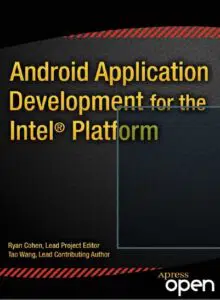Importance of Android Application Development for the intel Platform to a Full Stack Developer
Android application development is a process through which mobile applications are developed for mobiles running on the Android operating platform. Google says, “Android applications can be written in a variety of different languages including Java, Objective-C, C++, and Swift for use with Android-based smartphones.” Android offers a number of tools and frameworks for application development. Android comes pre-installed with most phones sold in the US.

Android application development includes two types of programming languages: Android Native Development and Java Software Development Kit. Android Native Development uses the Java programming languages to create native apps. On the other hand, Java Software Development Kit uses the Android Kit to develop apps written in specific code languages. These two different types of apps differ in features and complexity and hence each requires a different set of tools for development.
Android offers a variety of features including GPS, accelerometers, memory, screen sizes, support for various languages and much more. As many smartphone users are moving from desktop computers to their mobile handsets, the need for excellent user experiences is also increasing. To meet this need, android app developers have developed a variety of native applications that run on android devices. Some of the popular android applications include Hotel Android, Maps, Foursquare, Uber Android, Evernote App, Viber Android, Slideshare Android and Yelp Android. All these android app developers have come up with unique and attractive mobiles applications that make usage of the android devices features to its maximum level.
Android offers a number of ways to develop an application. The first way to develop an app is to divide the work into separate activities. Each of these activities should have a corresponding code that generates the corresponding view in the Android framework. Once the view is ready, it can be shared by other parts of the app by creating a view-fragmenting component. The Fragment view controller template lets one easy and convenient way of designing an interface for Android applications. This template contains one layout property that contains a layout variable that controls how the fragments are displayed in the final screen of the app.
Getting Started With Web Design With HTML5 & CSS3 Download Full Book
The Fragment View Presenter is designed to allow developers to drag and drop Fragments in one place while editing their content and modifying their behaviors. This allows the user to experiment with various views and interactions with a single activity. The Android app developer has the flexibility to switch between views during activity creation or any other time. This also allows him to create a scoped fragment that only displays the specific Fragment in the particular activity, hence saving memory.
Android app development can benefit from Android Asset Management tools. The Android Asset manager helps android apps locate, edit and manage Assets such as images, video, sound and text. This means that one need not reinvent the wheel and start developing assets from scratch, instead the android Asset manager simplifies the whole process and makes life easier.
One can easily debug and trace crashes as they occur in real time. Android Runtime instrumentation also provides rich security features to secure your mobile applications from hackers. The Mobile Asset Management tool helps android application development process to trace and debug any fault in the Android Asset Manager. Android Profiler and Traces are another useful feature that helps one to trace and debug any fault in the Android program and hardware drivers. The Traces command line utility helps one to trace and debug faults in the Android provider at runtime level.
Android is the best platform for creating rich internet applications, as it provides a huge library of tools, which greatly reduces programming languages syntax errors and duplicates time. This also enables a full stack developer to quickly build complex apps, as it supports several common object-oriented languages including Java, C/C++, Python, Perl, Pearl and many more. Android also offers a large community of developers and designers on the Android website and various online forums and developer communities. So, now android development environment is here to stay. Head over to the Android site and grab an Android SDK today!

